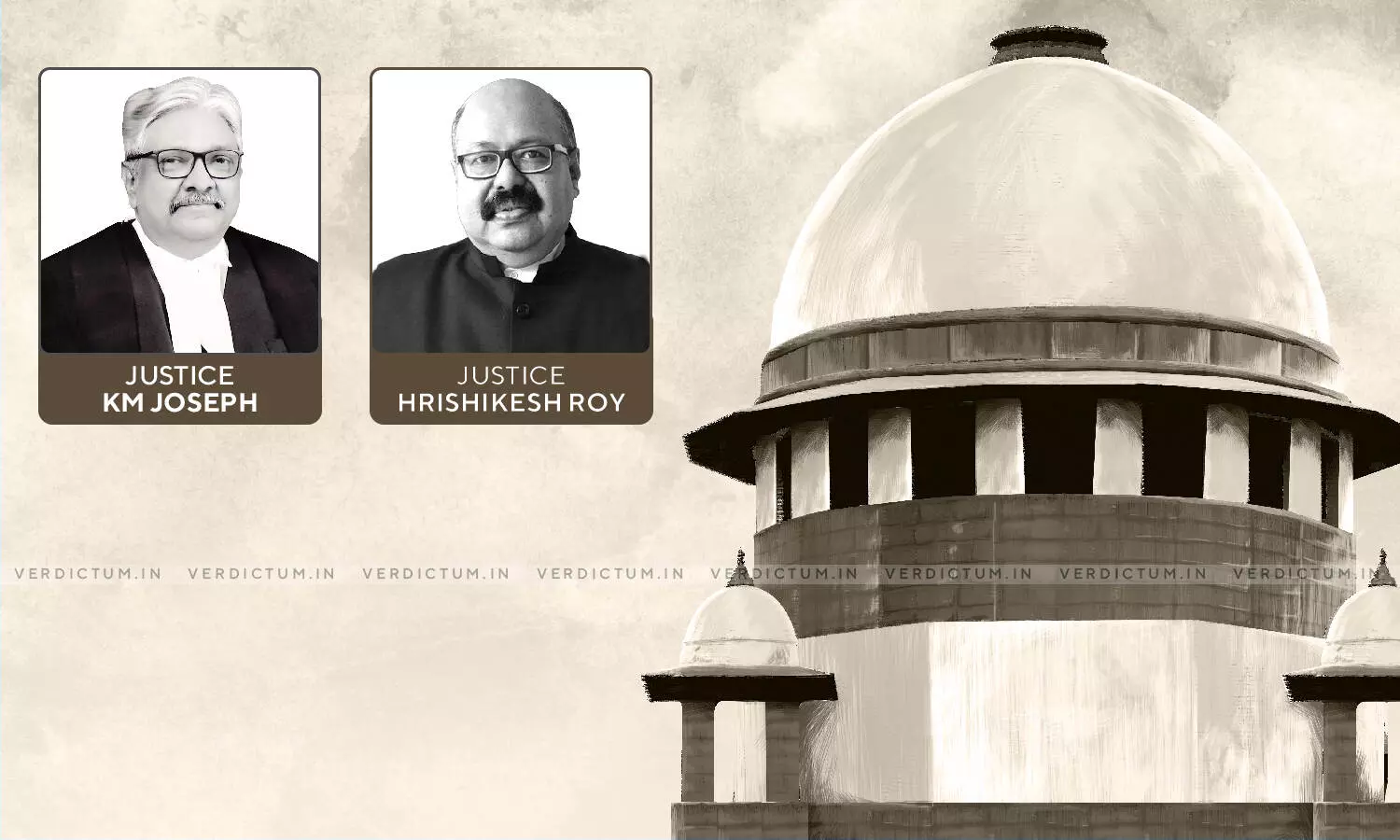
Whether Employee Entitled To Receive Salary If Eligible For Reinstatement, Authority Under Punjab CSR Would Decide - SC
 |
|The Supreme Court in a termination of an employee under the Punjab Civil Service Rules has held that upon an order being passed by the appellate authority finding the termination of the employee to be illegal and leaves it there, it would not ipso facto inevitably follow that the employee will become entitled to claim the salary for the entire period consequent upon his being found to be entitled to reinstatement. This is a matter for the authority to decide.
A bench of Justice K.M Joseph and Justice Hrishikesh Roy was hearing an appeal by an employee of the State Transport Department, who was suspended from service due to his conviction under a criminal case and his salary was withheld for the time when the conviction was in place.
The peculiar facts, in this case, are that the appellant was an employee of the State Transport Department. An FIR against him was filed on 2.9.1986 on the charges of embezzlement. On 6.10.1998 a charge sheet was filed and the appellant was suspended on 2.9.1986. During suspension another instance took place and another FIR was registered under sections 307 and 506 of the IPC. The appellant was convicted by the Trial Court. A show-cause notice was issued on 24.7.2002 The appellant replied to the said notice but he was removed from service via an order dated 13.3.2003. Meanwhile, the appellant was acquitted by the Trial Court via an order dated 22.12.2006. The conviction under sections 307 and 506 was challenged and the High Court modified the conviction and converted section 307 to 324 of the IPC.
The appellant challenged the order dated 13.3.2003, which removed him from service passed by the appellate authority. The authority set aside the termination order but withheld the salary and all other benefits for the duration when the appellant remain suspended. A civil suit was instituted by the appellant praying that the order dated 13.03.2003 and the appellate authority's order dated 29.01.2009 to the extent that the pay of the appellant was denied was illegal and arbitrary and against the Rules and that he was entitled to full pay for the period, which was denied to him. The suit went in favor of the appellant. On the first appeal as well the High Court sided with the appellant. But on the second appeal, the High Court sided with the respondent state. The present appeal emanated from challenging the order of the High Court passed in the second appeal.
Shri Gurminder Singh, appearing for the appellant pointed out once the High Court found that, it was in error in drawing support from Rule 7.3 It was further in error in not noticing that it overturned the premise for the judgment allowing the second appeal.
Shri D.S Patiwala, learned ASG appearing for the Respondent State submitted that no reliance could be placed on Rule 15(v)(f) of the '1970 Rules' in the manner done by the High Court. He would also highlight the fact that this is a case where the guilt of the appellant was established before the Trial Court (conviction under Section 324 and Section 506 of the IPC) the High Court confirmed the verdict in the first instance.
The Court noted that Rule 5 provides for the penalties with which the employee can be visited. The scheme of the Rules further states that an appeal can be carried against certain orders which are mentioned in Rule 15. The court further observed that
Punishment as it is so described by the appellate authority viz., depriving the salary and placing the employee under dies non, do not appear to be penalties provided in Rule 5. It was open to the appellate authority to enhance the punishment. The order, in other words, dated 29.01.2009 to the extent it became the subject matter of the civil suit would appear to be beyond the power of the appellate authority. To that extent, the appellant may be justified in calling into question the direction to deny him the salary by the appellate authority and treating it as dies non as a punishment.
The Court finally observed
"(1)The decree of the Trial Court as confirmed by the first appellate Court is to be sustained viz., we find that the first appellate authority in proceeding to impose the condition that the appellant will not be entitled to any salary for the period and that it will be treated as dies non can not be sustained.
(2) However, the further direction by the decree passed by the trial Court and confirmed by the first appellate authority that the appellant will be entitled to the salary for the period he was kept out of service also cannot be sustained.
(3) Insofar as the High Court has not noticed these aspects while allowing the appeal and dismissing the review petition, we are of the view that the impugned judgment also cannot be sustained."
Accordingly, the Court allowed the appeals and held that there would be a decree directing the second respondent to consider as to how the period till the appellant was reinstated is to be treated.
Click here to read/download the Judgment